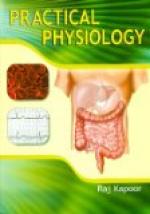As the name implies, the proteids, or nitrogenous foods, contain nitrogen; carbohydrates and fats, on the contrary, do not contain nitrogen. The principal proteid food-stuffs are milk, eggs, flesh foods of all kinds, fish, and the cereals among vegetable foods. Peas and beans are rich in proteids. The essential use of the proteids to the tissues is to supply the material from which the new proteid tissue is made or the old proteid tissue is repaired. They are also valuable as sources of energy to the body. Now, as the proteid part of its molecule is the most important constituent of living matter, it is evident that proteid food is an absolute necessity. If our diet contained no proteids, the tissues of the body would gradually waste away, and death from starvation would result. All the food-stuffs are necessary in one way or another to the preservation of perfect health, but proteids, together with a certain proportion of water and inorganic salts, are absolutely necessary for the bare maintenance of animal life—that is, for the formation and preservation of living protoplasm.
103. Starches and Sugars. The starches, sugars, and gums, also known as carbohydrates, enter largely into the composition of foods of vegetable origin. They contain no nitrogen, but the three elements, carbon, hydrogen, and oxygen, the last two in the same proportion as in water. The starches are widely distributed throughout the vegetable kingdom. They are abundant in potatoes and the cereals, and in arrowroot, rice, sago, and tapioca. Starch probably stands first in importance among the various vegetable foods.
The sugars are also widely distributed substances, and include the cane, grape, malt, maple, and milk sugars. Here also belong the gums and cellulose found in fruit, cereals, and all vegetables which form the basis of the plant cells and fibers. Honey, molasses, and manna are included in this class.
The physiological value of the starches and sugars lies in the fact that they are oxidized in the body, and a certain amount of energy is thereby liberated. The energy of muscular work and of the heat of the body comes largely from the oxidation, or destruction, of this class of foods. Now, inasmuch as we are continually giving off energy from the body, chiefly in the form of muscular work and heat, it is evident that material for the production of this energy must be taken in the food. The carbohydrates constitute the bulk of our ordinary food.
104. Fats and Oils. These include not only the ordinary fats of meat, but many animal and vegetable oils. They are alike in chemical composition, consisting of carbon and hydrogen, with a little oxygen and no nitrogen. The principal kinds of fat used as food are the fat of meat, butter, suet, and lard; but in many parts of the world various vegetable oils are largely used, as the olive, palm, cotton seed, cocoanut, and almond.




